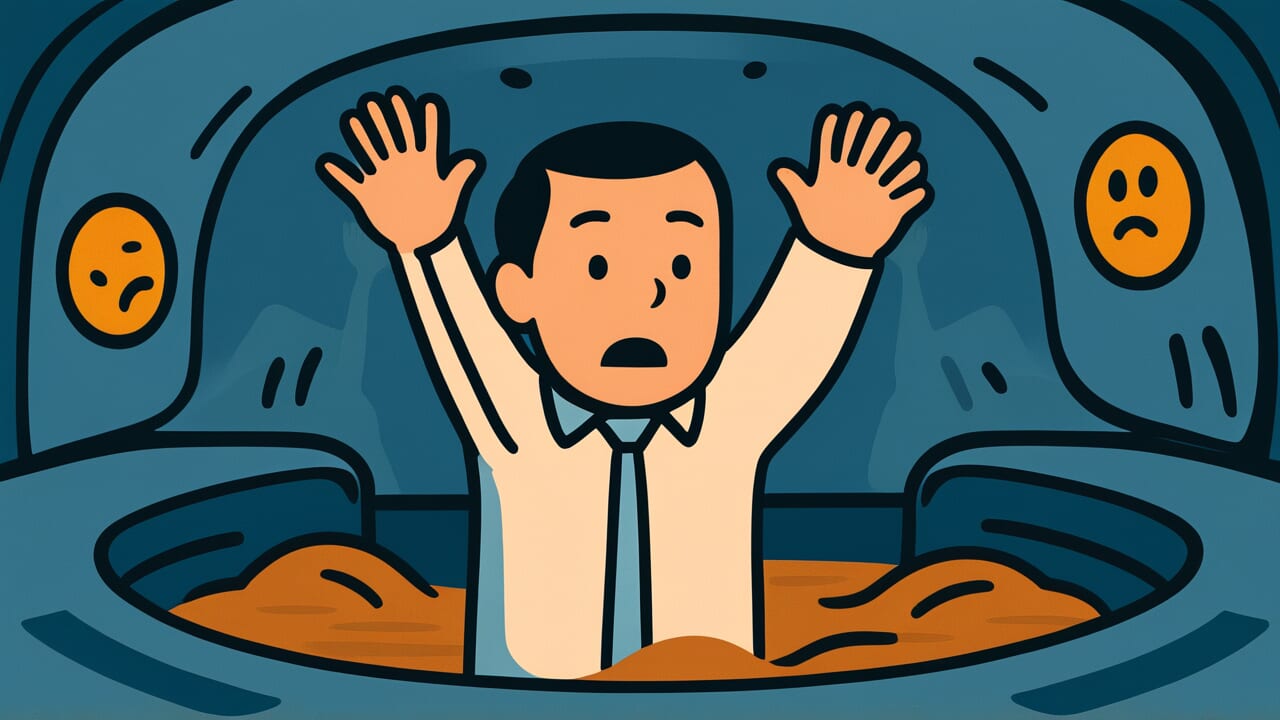How to Read “When a petty person is cornered, they become reckless”
Shōjin kyū sureba koko ni ran su
Meaning of “When a petty person is cornered, they become reckless”
This proverb warns about human weakness. It points out that small-minded people abandon reason and act violently when they face desperate situations.
When cornered, such people throw away the morals and rules they should follow. They become self-destructive, attack others, or act recklessly.
People use this saying to criticize those who lose their composure in difficult situations and trouble others. It also serves as a reminder not to become that kind of person yourself.
For example, it describes a business owner who lashes out at everyone after their company fails. Or a student who becomes violent after failing an exam.
Even in modern society, this proverb teaches an important lesson. Our true character is tested when we face pressure and stress.
The saying shows an ideal: truly mature people keep their reason and act properly, no matter how difficult the situation becomes.
Origin and Etymology
This proverb likely comes from the ancient Chinese text “Analects of Confucius.” In the Analects, Confucius teaches about the ideal human character by contrasting the noble person with the petty person.
One of his teachings states: “A noble person, even when cornered, does not become reckless.” This means a virtuous person never abandons reason, no matter how desperate their situation.
“When a petty person is cornered, they become reckless” expresses the opposite behavior. Here, “petty person” doesn’t mean someone of low social status. It refers to someone with low moral character and a small spirit.
“Become reckless” means to act violently and abandon reason. It describes behavior that disrupts order and proper conduct.
Since Confucius’s time, people have believed that true nature appears when facing hardship. Anyone can behave well when life is comfortable.
But how you act when cornered reveals your true character. This proverb captures this wisdom about human nature in a concise expression.
It traveled to Japan and has been used as a warning for generations.
Usage Examples
- As soon as his company started failing, he began yelling at his employees. This is truly “when a petty person is cornered, they become reckless.”
- Just because you failed the entrance exam doesn’t justify violent behavior. People will say “when a petty person is cornered, they become reckless.”
Universal Wisdom
This proverb teaches a universal truth: a person’s true worth appears not in good times, but in adversity. Anyone can act calmly when life is peaceful.
But real character shows in how you react when facing difficulties.
Why do petty people lose their way when cornered? Because they haven’t trained their inner selves during normal times.
People who depend on superficial success and stability never build a spiritual foundation. When that foundation crumbles, they cannot stand.
When cornered, emotion overrides reason. Fear and anger distort their judgment.
Everyone has weaknesses. But by recognizing these weaknesses and training your mind daily, you can develop the strength to hold firm when crisis comes.
The ancients left us this proverb not just to criticize petty people. They wanted each of us to recognize the “pettiness” within ourselves and work to overcome it.
Hardship is unavoidable. But you can choose how to face it.
This proverb continues to teach us across the ages: the importance of having the strength to never abandon your humanity, no matter the situation.
When AI Hears This
Human moral behavior can be understood as a “low entropy state” in physics terms. Entropy measures disorder, and according to universal law, it always increases when left alone.
In other words, order naturally collapses. This is the way of nature.
Living honestly, keeping promises, and caring for others are highly organized states. Just as keeping a room clean requires the energy of cleaning, staying moral requires the energy of “margin.”
Economic stability, time to spare, mental security. These are external energies that maintain the order called morality.
When people in desperate situations fall apart, their energy supply has been cut off. The moment they become a closed system, entropy increases according to physical law, and order collapses.
Lying, stealing, and betraying are actually transitions to “energetically easier states.”
Information theory offers another interesting perspective. Moral judgment requires extensive information processing.
But when cornered, the brain enters energy-saving mode and operates only on simple survival instinct. This is information compression, or thought simplification.
Morality, it turns out, is luxurious information processing.
Lessons for Today
This proverb teaches modern people the importance of maintaining mental margin in daily life. Modern society is highly competitive, and everyone carries some kind of pressure.
In such circumstances, it’s important to think ahead about how you’ll act when cornered.
Specifically, establish your own stress-coping methods before facing hardship. There are many things you can do in peacetime.
Have trustworthy people to consult. Build habits of relaxing through hobbies. Use meditation or exercise to balance mind and body.
Also important is letting go of perfectionism and developing mental flexibility that accepts failure.
Furthermore, this proverb deepens our understanding of others. When someone acts violently, don’t simply criticize them.
If you can think about the desperate circumstances behind their behavior, you can build more constructive relationships.
You have the potential to become a petty person. So do I. Recognizing this, let’s work together to develop the strength to maintain human dignity in any situation.



Comments